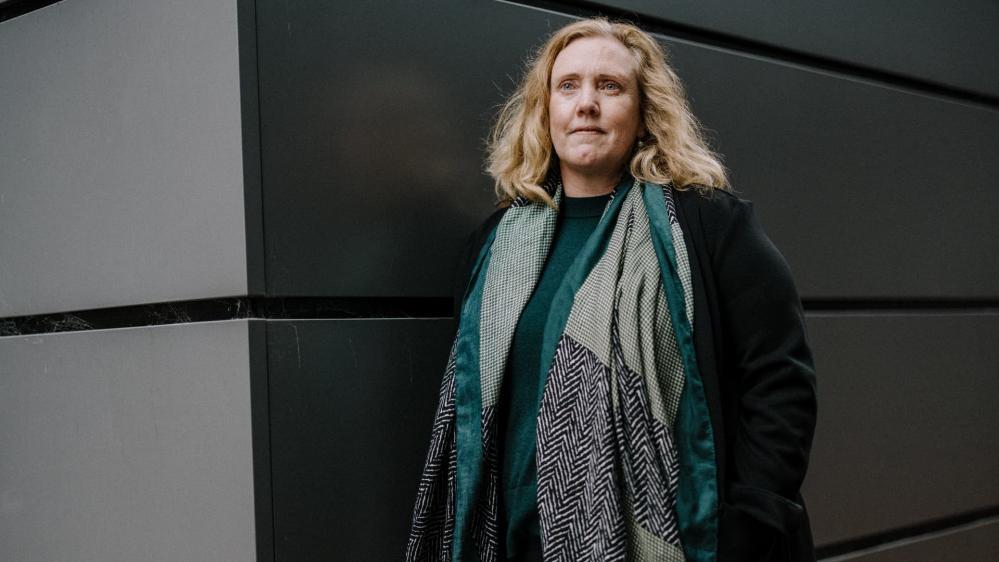New study captures the financial and emotional strain of unpaid, mandatory placements on health and education students
New research from the University of Wollongong (UOW) has provided a scaffold for how tertiary students could be better supported to complete mandatory professional placements during their degree.
Greater access to scholarships, grants to undertake placements, subsidised transport and parking, and more flexibility for students who are juggling family responsibilities are among the raft of strategies put forward by hundreds of students from across Australia and New Zealand.
Drawing on the responses of more than 550 students from the medicine, health and education-related fields, the study, published in Australian Health Review, revealed that most students who undertake unpaid placements faced 'placement poverty', which refers to the financial burden experienced due to compulsory training.
Led by Dr Kelly Lambert, from UOW's School of Medical, Indigenous and Health Sciences, this was the first time that researchers had sought to quantify the impact of placement on student wellbeing in the post-COVID landscape, and to examine the differences between health and education professions.
In many disciplines, placement is a mandatory component of student learning and is required to demonstrate professional competency before entering the workplace. Unpaid placement hours vary between fields, from 420 hours for postgraduate teaching, 700 hours for physiotherapy, 1000 hours minimum in occupational therapy and psychology, and more than 2300 hours in medicine.
Dr Lambert said the urgency of the issue was exacerbated by the cost-of-living crisis.
"The study highlights that all students need support. There is a societal perspective that only nursing and teaching students are required to undertake placements, but it is much broader than that, particularly in the health professions," Dr Lambert said.
"We heard stories of students working 50 hours a week to save for their placements, on top of a full study load. Or students juggling full-time jobs on top of the full-time job of a placement.
"Burnout is very real and it has implications for the workforce. The known financial strain of professional placement may discourage students from entering these vital professions."
One medical student told the researchers that the burden of unpaid placements was too much on top of high study loads and personal responsibilities.
"Medicine is a full-time gig and l am a high achieving student. But instead of my afternoons being a time of study they are filled with work to try and make ends meet."
More than 70 per cent of students surveyed for the study experienced food insecurity during their placements, while just under 50 per cent had to rely on financial support from either the government or family members. This was the first time that researchers have looked at food insecurity through the prism of placement poverty.
As part of the study, the students suggested a number of strategies to alleviate the impact of poverty placement, which provided an insight into the issues that are important to students and how they can be supported to complete their degrees.

Associate Professor Kelly Lambert, lead author on the study.
These included part-time placement options, flexibility for those with children, financial counselling, greater support for rural placements, access to emergency funds, subsidised parking for hospital placements, subsidised uniforms, financial counselling, discounted accommodation, access to bulk-billed medical care and counselling, and tools to recognise and manage burnout.
The proposed strategies outlined the practical, financial, academic, and wellbeing steps that could be taken to improve graduate outcomes and ensure that students do not begin their careers in these fields on the back foot.
A greater number of scholarships would also improve outcomes, with the study finding that only 10 per cent of health students, and 4.5 per cent of teaching students received a scholarship to help with the costs of placement.
The study revealed that students' placement preferences – the location where they are sent to undertake their placement – were largely, at 63.8 per cent, determined by cost rather than learning opportunity. Yet close to 60 per cent of the students said they were not given the chance to choose the location of the placement, and whether they could afford it.
Earlier this year, the Australian Government announced the introduction of the Commonwealth Prac Payment as part of its 2024 Budget. It will be available for nursing, teaching, midwifery, and social work students and will come into effect from July 2025.
The payment is in line with the reforms to higher education proposed in the Australian Universities Accord, which aims to improve equity and accessibility for all students.
Dr Anne McMahon, Senior Lecturer in UOW's School of Medical, Indigenous and Health Sciences and co-author of the study, said the financial burden of unpaid, mandatory placement was a driving force of inequity among students, and, if not addressed, would ultimately lead to a lack of diversity in the health and teaching professions.
"The fundamental diversity in our society will not be reflected in our professional groups in every discipline that requires placements as they cannot force their way through without an insane amount of personal and wellbeing cost," Dr McMahon said.
"Our research showed that single parents, students with children, people living with a disability or from a lower socioeconomic background are less likely to begin and finish degrees that require mandatory professional placements."
Dr Lambert said more must be done to attract students to health and education, professions that underpin society.
"Health and teaching are crying out for graduates, so why do we not reduce the financial and emotional burden of poverty placement in these disciplines?"






